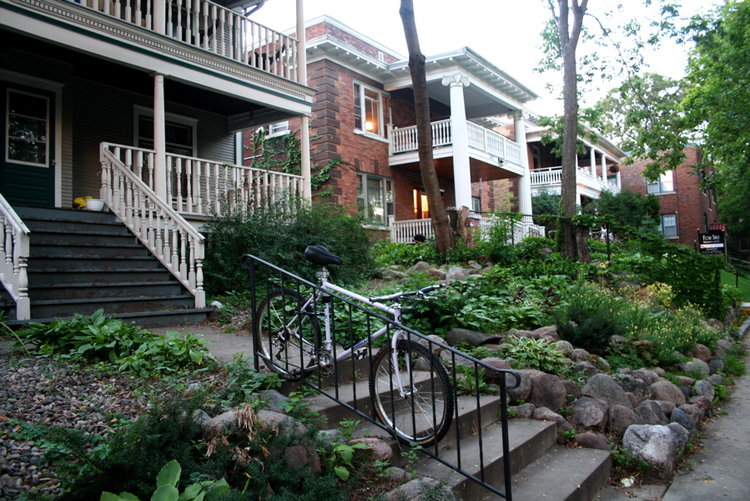Charlotte’s 2040 Comprehensive Plan must emphasize sustainability, put people’s needs first
Charlotte Future 2040, a comprehensive plan to guide Charlotte’s growth over the next two decades, is expected to last into 2021. The planning process involves extensive community outreach, a great deal of city government staff time and, ultimately, approval by Charlotte City Council. The end goal is a long-term vision, clear objectives, and an action plan to reach desired outcomes. Often these plans include a collection of growth strategies accompanied by supporting policies to help guide decision-making in the years that follow the plan. Once complete it may take another year or so to translate the plan into a new Unified Development Ordinance (UDO) – the primary tool the City will use to implement the growth framework of the plan.

Duplexes and triplexes can provide more housing availability within existing neighborhoods. (photo: strongtowns.org)
To serve the long-term interests of every Charlottean, these efforts must embrace the tenets of sustainability in order to extend and expand community prosperity. All too often the temptations of short-term gains compromise long-term benefits. For this reason, the plan should seek to modernize our approach to community development and look beyond the planning horizon of 2040. It should consider the needs of future generations a century from now.
The vision we adopt will influence the degree with which our community enjoys shared prosperity. Therefore the process for crafting the vision must be equitable and transparent. We applaud the commitment to that goal exhibited thus far by the planning department and other city leaders.
To achieve true sustainability, key goals of Charlotte Future 2040 must include a focus on the needs of people and an emphasis on building a complete community – rather than advancing development at the lowest cost. This will require clear goals to create a community that is:
- Safe. Roadways and developments designed for people not just cars.
- Efficient. A compact development pattern that protects our natural ecosystems and reduces cost of maintenance and public services.
- Competitive. A robust, well-trained workforce that is well-connected to jobs.
- Affordable. A place where a diversity of housing and transportation options increases affordability and reduces strains on existing infrastructure.
- Active. Premier parks and greenways distributed throughout our city that offer the opportunity for enjoyment and a healthy lifestyle.
- Connected. Closes the gaps between people and places, neighborhoods and amenities, and opportunities to celebrate the diversity of our community.
- Low Carbon. A compact development pattern, a mixture of land uses, safe bicycle and pedestrian networks, and an efficient transit system will all be critical to becoming a low-carbon community and reducing our contribution to climate change.
The goals above run contrary to Charlotte’s post-World War II development pattern, which focused on the separation of land uses, moving cars, and short-term financial gains for some. But the city lives long after our lives end; we owe it to future generations, and their prosperity, to keep longer-term goals top of mind.
The 2040 comprehensive plan recently approved for Minneapolis shows what Charlotte could do. Minnesota’s largest city will prohibit zoning that limits many neighborhoods to single-family construction, abolish parking minimums for new construction, and allow high-density buildings along transit corridors. This will lead to more affordable housing, fewer carbon emissions, more economic mobility, and less neighborhood segregation by race and class. Facing opposition similar to what we are likely to see in Charlotte, civic and political leaders in Minneapolis came together, resolving to build their city around people, not cars, from now on.
Thanks for reading!
As a nonprofit, community support is essential for us to keep doing what we do — including providing free articles like this. If you found this article helpful, please consider supporting Sustain Charlotte.
Want to stay in the loop? Subscribe to our weekly newsletter and follow us on Instagram, Facebook, and Twitter.
